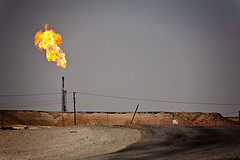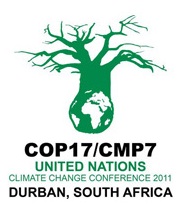
Oil wealth after the Arab Spring: A trillion-dollar catalyst for change
At the end of the 19th Century, Lord Curzon, the then British Viceroy of India, described Iran and its Arab neighbours as “pieces on a chessboard upon which is being played out a game for the domination of the world”. The geostrategic importance of the Middle East, with its immense oil wealth, has shaped the policies of colonial empires, secured the longevity of autocratic regimes and given rise to religious elites. The ‘game of chess’, as described by Lord Curzon, promises great riches and influence for the players involved, but has often come at a huge cost for the majority of the Arab people. Indeed, oil wealth, so narrowly shared between the region’s ruling minorities, has historically presented a barrier …
Resource control: Right or Privilege?
‘Resource control is a right. It is not a privilege’ -A member of a peaceful youth rally in the Niger Delta, from the film Sweet Crude. In the first couple of minutes of the opening of the film, Sweet Crude, director, Sandy Cioffi, discloses, ‘this is not the movie I intended to make’. She had travelled to the Niger Delta to film the building the Niger Delta Friendship Library, which was to serve as a ‘symbol of peace’ in the region. While traveling, visiting and listening to local voices, the true value of this library as an empty symbol was revealed. Sandy says, the ‘reality of their lives are far more complex than a community library. Knowing them would change …

EU and China’s institutional diplomacy in the field of climate change.
Forthcoming Occasional Paper to be published by the European Union Institute of Security Studies (EU ISS). Author: Pietro De Matteis. Summary and Policy Recommendations. This Occasional Paper aims at giving another perspective on the relevance of climate change for the EU’s foreign policy. Considering its linkages with various policy areas such as energy security, economic growth, foreign policy and even political stability, climate change is a major “game-changer” in international relations, and constitute a significant opportunity to reshape the international order according to the new global equilibria. As such, the set up of the climate change regime constitutes for the EU both an opportunity and a threat, in as much as it may either accelerate Europe’s decline as a …
The Fight for Libya’s Oil
While the remaining forces loyal to Muammar Gaddafi still hold out against the rebel militia and its NATO allies in the coastal town of Sirte, the fight for Libya’s oil has already begun. Europe’s oil companies are hovering like a flock of carrion birds over the carcass of Gaddafi’s regime. The pickings to be had are significant. Libya accounts for 2% of global oil production, but the development of new fields could see that figure double in the next decade. Proven reserves of 46.4 billion barrels are confirmed, but vast tracts of the Libyan deserts remain unexplored. Europe’s oil giants Eni, Total, BP and Repsol YPF are perfectly positioned to take advantage of these commercial opportunities. Gas production, too, has …
Media interest in climate change takes a dive
A year can be a very long time in the life of media interest. In December 2009, I was one of more than 4,000 journalists who attended the UN’s Copenhagen summit on climate change – probably the largest press presence for an international event outside of sport. The journalists came from 119 countries, and suffered the freezing temperatures and disappointing results. It wasn’t just the Western press who were there. Emerging powers like Brazil and China both had more than 100 journalists. (see the RISJ report at http://reutersinstitute.politics.ox.ac.uk/publications/risj-challenges/summoned-by-science.html) One year on, and the next major summit at the Mexican resort of Cancun was much less of an attraction – despite the beaches, tequila and abundance of sun. This time, around …
The “Post-Copenhagen Era” and Cancun: an opportunity for the EU and China.
Today there is no agreement on what should replace the Kyoto Protocol (KP) expiring in 2012. What is certain, however, is that the framing of the new climate regime may create new scenarios, involving new fora and strengthening certain international players while weakening others.









